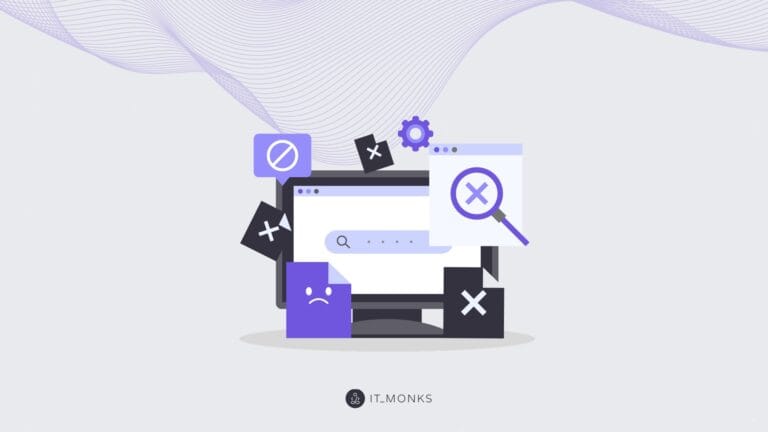How HTTPS & Website Security Issues Affect SEO
Table of Contents
Table of Contents

Website security has significant importance for SEO. If Google started sending lots of insecure links to people, it wouldn’t remain the leading search engine in the world. Most users would have shifted to other search engines that take care of users’ online security and rank only trusted websites. Luckily, website security means a lot to the search giant, making website owners pay more attention to SEO. Whether you optimize your site by yourself or use the services of SEO agencies, it’s vital to take responsibility for your site’s security; otherwise, all your efforts will be worth nothing.
Importance of Website Security for SEO
Google needs to ensure that website owners protect users from breaches and online attacks. Although the search giant cannot be directly involved in securing websites, it can spur security by ranking safe websites higher in its search results. Website security and SEO are the two related terms. With that said, if you look forward to improving your site’s ranking, you need to consider improving its security to avoid the
Lack of HTTPS Affects Your SEO
The HTTPS part featured in your website’s URL address indicates your site’s security. The Hypertext Transfer Protocol includes the SSL-2048 bit key that ensures that the communication between your website and the webserver is well-protected.
Google started to rank HTTPS websites higher in its search results after updating its SEO algorithm back in 2014. When comparing the ranking positions of two sites, both frequently updated, well-designed, and targeting similar keywords and audiences, the HTTPS website will get a higher ranking than the HTTP one. Google has given much weight to HTTPS websites, encouraging most website owners to start the migration from HTTP to HTTPS.
Websites Get Pushed to Blacklists
Insecure websites are an easy target for hackers. Once they reach your admin area, they have the freedom to do whatever they wish, including planting malicious links all over your site’s content. Whenever it happens, Google and other search engines identify your website as a malicious and spammy resource, which should better get blacklisted.
Whenever it happens, it means the death of your SEO strategy. Even if your site ranked high in SERPs, it would hit bottom after Google blacklists it.
High Bounce Rate
High bounce rates have a really bad effect on your website’s SEO. Modern users are focused on online security. Unless they see a little lock next to your website’s URL, they won’t treat your resource as a secure one and click away fast enough. If this happens, it can bring you high bounce rates, which will mean that your website is not interesting to your audience. Thus, there is no point for Google to recommend it on the first page of search results.
Reputational Damage
Poor website security has a bad effect on your website’s reputation. Unless it’s a website representing a popular brand name, you will get only a few people clicking on your link if it doesn’t look safe enough. Most of such visits might happen accidentally, and people would click away once they realize where they’ve been taken to. It results in a big drop in organic traffic and reputation loss. That’s why it’s recommended to invest in online security before an irreparable damage happens.
How to Fix Website Security Issues for Better Ranking
If you look forward to making your website a more secure place on the web and improving your positions in search engines, the following tips will help you protect your website from data breaches and improve its ranking.
Get an SSL Certificate
The SSL Certificate carries much weight in website security and SEO. This small cryptographic tool moves data safely between web servers and web browsers, thus making it impossible for hackers to read or decipher the encrypted messages. If you don’t have an SSL Certificate installed on your site, now is the right time to get one. There are many SSL certificates providers available. Some of the best SSL certificate providers for WordPress include Let’s Encrypt, Comodo SSL, and Entrust.
Google cannot send users to websites that aren’t secure. That’s why buying and installing an SSL certificate is one of the first things you should do to improve website security for SEO.
Use Strong Passwords
We won’t get tired of repeatedly repeating that using strong passwords on your site is one of the simplest yet most effective ways of protecting your website from unauthorized access.
Install Security Plugins
If you have a WordPress-based website, you can improve SEO security by installing security plugins. The best WordPress security plugins are Sucuri, Security Ninja, and BulletProof Security.
Bottom Line
Website security is one of the major ranking factors for Google and other search engines. Search engines list secure websites higher in the SERPs to ensure users get the safest recommendations. The ball is in your court – you either work on improving your website security for SEO or leave things as they are and vanish from search results.




